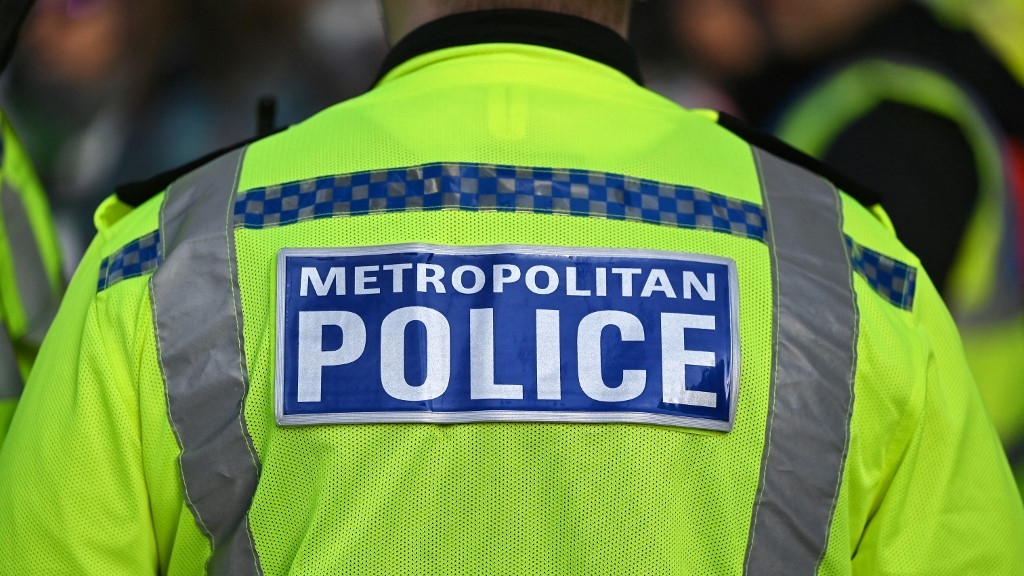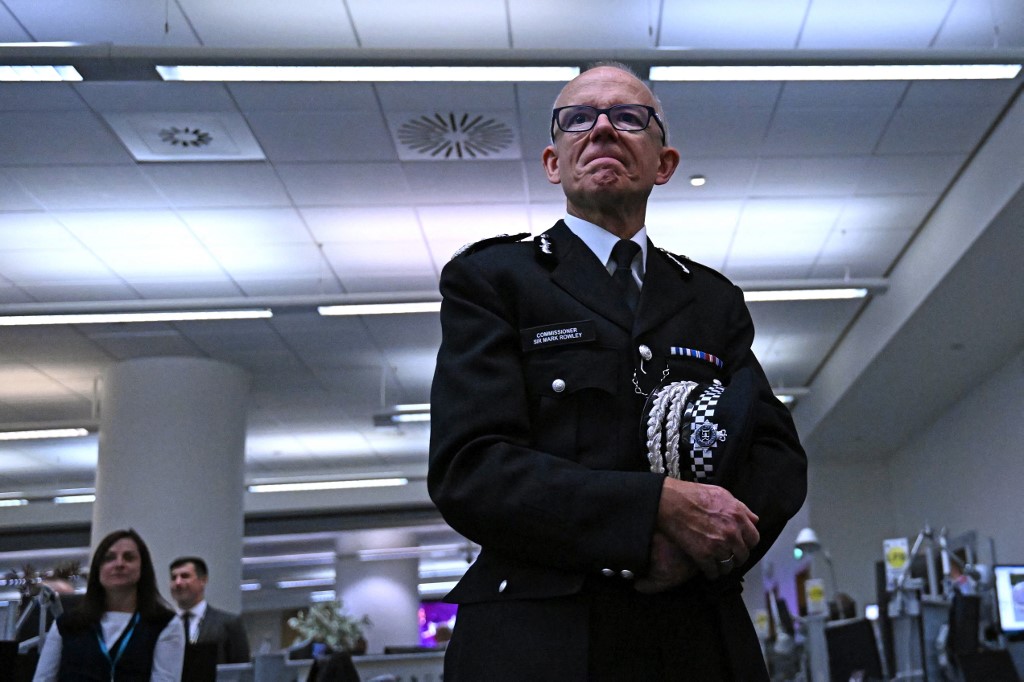London's Metropolitan Police must be disbanded

Sir Robert Mark, who became commissioner of London’s Metropolitan Police in the 1970s on a mission to clear out corruption within the force, once told of his ambition to “arrest more criminals than we employ”.
It doesn’t sound like that unrealistic a goal to set, does it? Yet for generations now, official inquiries into alleged police misconduct in the British capital have reported systematic abuses, notably racism. Now we can add sexism and homophobia to the mix.
Time and again, individual criminal officers are prosecuted as if none of their colleagues are in any way complicit, at least through negligence. Former Metropolitan Police officer David Carrick is one of Britain’s worst-known sexual offenders, pleading guilty this past January to 71 sexual offences. The Guardian reports he had been nicknamed “Bastard Dave” by his colleagues, due to his fondness for cruelty.
Met leadership has always been keen to blame 'bad apples', but they forget the entirety of the proverb - that one bad apple spoils the whole barrel
Sarah Everard, a 33-year-old digital marketing executive, was raped and murdered in London in March 2021 by Wayne Couzens, who served for years in the same elite police unit as Carrick. He was nicknamed “The Rapist” by his workmates - yet no alarm bells, no red flags.
In the wake of Everard’s murder, the Met commissioned a review of its culture and standards of behaviour. Dame Louise Casey reported back this week: sexual assaults covered up, a culture of bullying, and discrimination “baked into the system”. Her 363-page report was damning, outlining a litany of abuses. A Muslim officer had bacon shoved into his boots, a Sikh officer had his beard cut, and another had his turban crammed into a shoebox.
Stay informed with MEE's newsletters
Sign up to get the latest alerts, insights and analysis, starting with Turkey Unpacked
The report highlights a culture of misogyny so deep that 12 percent of women - in the Met itself - said they had been harassed or attacked at work. It details rapes carried out by officers, a disproportionate use of stop-and-search against Black people, and a much higher chance of disciplinary action against officers from ethnic minorities.
Despite drawing attention to officers targeted over their religious beliefs, Casey’s report does not specifically mention Islamophobia within the UK’s largest police force. It does note that 16 percent of Asian respondents had experienced discrimination on grounds of their faith, compared with just three percent overall.
Reports of Islamophobia in the Met have been rife in recent years, and London Mayor Sadiq Khan forced out the previous commissioner Cressida Dick amid accusations that she was not tackling a culture of misogyny and racism.
Spate of allegations
How can any senior police officer at Scotland Yard say they didn’t know what was going on? This is an organisation with thousands of highly trained professional detectives. Are we meant to believe that none of them spotted anything untoward?
In January, more than 150 Met police officers were under active investigation over allegations of sexual misconduct or racism. More than 1,000 officers and staff previously accused of domestic violence and sexual offences are now having those allegations reviewed. Where were these investigations years ago? How many attacks on women by police could have been prevented if this had been tackled sooner?
You could understand an accountant or a bricklayer having no idea that someone they worked with was a wrong’un. They’re not career crime fighters. But these Met police detectives are meant to be the best of the best - the champions of our country’s law enforcement. It doesn’t exactly inspire confidence when they lack the lateral thinking to investigate a guy they call “The Rapist”.
If these officers knew, or even suspected, that their police colleagues were carrying out sexual attacks, and did nothing, then they are complicit. If they didn’t know, they’re clearly not good enough at their jobs and should resign immediately. And if Casey can unearth all this in a year-long investigation, what does that say about the detective skills of London’s finest?
Individual officers have indeed raised internal complaints. In the first seven months of 2022, there were an average of 19 grievance cases per month - despite the Met taking more than 400 days on average to finalise misconduct cases, and the potential for repercussions against those who speak out.
“How can I sit there with victims of crime and encourage them to report incidents when I myself have no faith in the system or process?” one officer told Casey’s team. Another officer remarked: “When I have spoken out against such instances, the complaints process has not been followed, and as a result, I have been penalised and given rubbish jobs.” And another: “It’s a system where the outcome is always rigged.”
Met chief Sir Mark Rowley has responded to the report, saying he was determined to reform the police service and rid it of officers who abuse their power. “The appalling examples in this report of discrimination, the letting down of communities and victims, and the strain faced by the frontline, are unacceptable,” he said. But while he acknowledged that bias was systemic in the Met, he rejected the term “institutional” as “politicised and ambiguous”.
The Met is meant to be held to account by the government’s home secretary; the latest holder of that title is currently celebrating a startlingly cruel and farcical scheme to send migrants to Rwanda. The Met, as an instrument of the state, reflects the British government’s own preposterous cruelty.
Since 2010, the Met’s budget has faced cuts of around £700m ($858m), Casey’s report noted. But two of the best-resourced units, the Specialist Firearms Command and the Parliamentary and Diplomatic Protection Command - home to Couzens and Carrick - had the worst culture, according to the report.
Structures of power
Serious voices are now calling for the Met to be broken up. Casey herself recommends that specialist teams should be formed to deal with rape and sexual offences. The Met accounts for about a quarter of the police budget in England and Wales, and it has responsibilities ranging from royal protection to counter-terrorism. It is a huge, nebulous organisation that must be almost impossible to run effectively.
Met leadership has always been keen to blame “bad apples”, but they forget the entirety of the proverb - that one bad apple spoils the whole barrel.
Sure, the Met could be broken up into city police, a national security agency and other specialist agencies, creating whole new shadowy empires of secrets and unaccountability. But it is the system itself that has corrupted good-willed men and women into joining this gang of thugs. And it is those very same structures of power that attract bullying and toxicity in the first place.
Reform is only possible when the organisation’s leadership accepts the analysis of independent experts. By refusing to acknowledge that the Met has an “institutional” problem, Rowley is unable to understand, or unwilling to admit, that it is not a few bad apples, but the whole orchard that is poisoned. Under such conditions, reform is impossible.
The Metropolitan Police is no longer fit for purpose, if it ever was, and must be disbanded - stripped apart - with every rotten apple facing their day in court.
From its ashes, its funding should be disbursed to other local government agencies as directed by the councils of the city’s boroughs. Shift the Met’s funds to social services, such as housing, mental health and addiction treatment, and watch the crime rate plummet.
There will always be a need for law enforcement in Britain’s capital, and any replacement organisation will struggle to regain the consent of the city’s residents to be policed. After nearly 200 years, that will be the damning legacy of the Metropolitan Police.
The views expressed in this article belong to the author and do not necessarily reflect the editorial policy of Middle East Eye.
Middle East Eye delivers independent and unrivalled coverage and analysis of the Middle East, North Africa and beyond. To learn more about republishing this content and the associated fees, please fill out this form. More about MEE can be found here.







